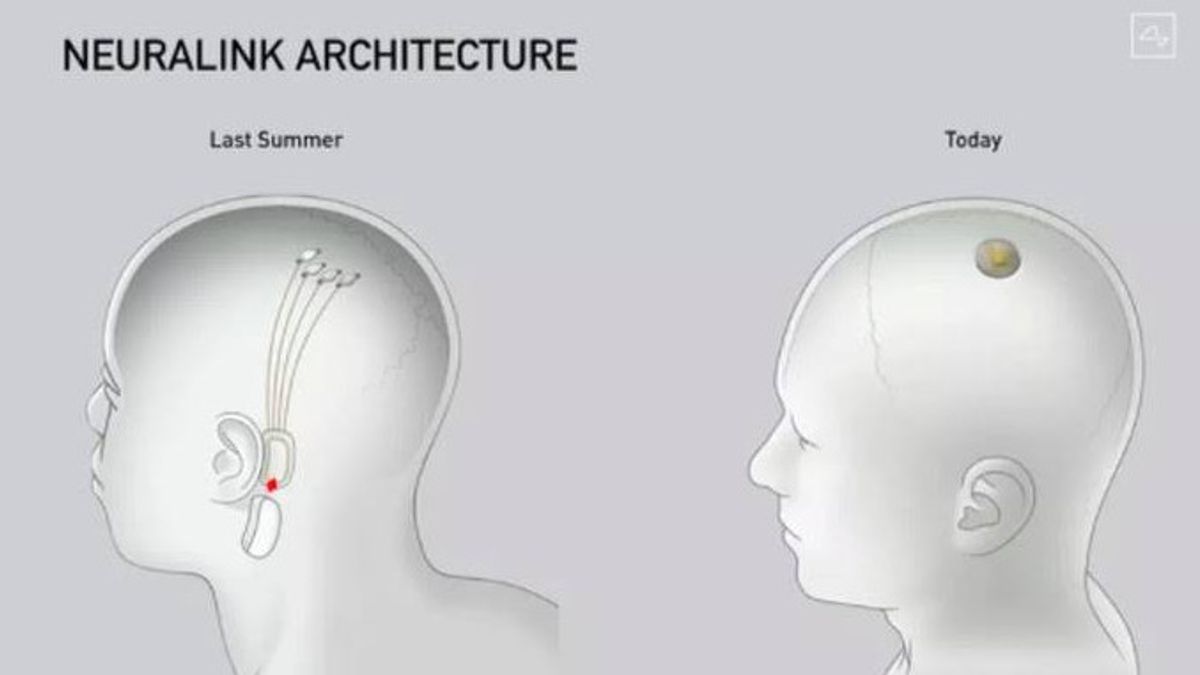JAKARTA - The United States (US) reportedly rejected Neuralink's plan, a company owned by Elon Musk that wants to try out testing the chip in the human brain. This is due to the potential injury to the vital organs.
The rejection was carried out by the Food and Drug Administration (FDA). They stated that there were dozens of problems that the company had to deal with before human trials.
Neuralink employees who are still active and former employees said the agency's main concern was the safety concerns of devices involving lithium batteries.
In addition, the potential for implantable small wires that can move to other areas of the brain and the question of whether and how the device can be removed without damaging brain tissue.
Over the years, Musk has repeatedly claimed human trials for his brain computer interface were imminent.
In 2019, Musk said his company would seek FDA approval by the end of 2020. Then, in 2021, the billionaire tweeted his company might advance to human trials in the same year.
Furthermore, in April 2022, Musk hopes that Neuralink can get its first human implant before 2023. Not long ago, in November 2022, the SpaceX CEO promised human testing would take place in about six months while attending Show and Tell events, but failed.
"We want to be very careful and confident that it will work well before entering the device into humans, but I think we have sent most of our documents to the FDA and maybe within about six months we will be able to upload Neuralink in a human being," Musk said at the time.
Now, it looks like the company will also miss this self-determined deadline. Despite Musk's dream journey, Neuralink only submitted its first app asking for permission from the FDA for a human trial proposed in early 2022.
Neuralink has also tested its chips on monkeys, including a nine-year-old ape demonstration who is learning to play the classic 1970s Pong video game in exchange for a banana smoothie prize.
But complaints then came from animal rights groups, including the Doctors Committee for Responsible Treatment (PCRM).
They criticized the company by saying it did not provide adequate maintenance to its research monkeys.
At the time, Neuralink was also the target of at least one US government investigation into alleged abuse of its animals.
The allegation said the company was transporting contaminated devices removed from the brain of the infected monkey without packing them safely.
Reuters reports nearly 1,500 monkeys, pigs and mice have been killed while undergoing Neuralink testing since 2018. This was quoted from The Independent, Saturday, March 4.
The English, Chinese, Japanese, Arabic, and French versions are automatically generated by the AI. So there may still be inaccuracies in translating, please always see Indonesian as our main language. (system supported by DigitalSiber.id)









